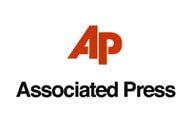


By Casey Bukro
Ethics AdviceLine for Journalists
The Associated Press became the latest news organization to adopt a humanitarian policy aimed at fairness in the way it reports on people.
AP will no longer name suspects in minor crime stories, writes John Daniszewski, the AP’s vice president for standards.
“Usually, we don’t follow up with coverage about the outcome of the cases,” writes Daniszewski. “We may not know if the charges were later dropped or reduced as they often are, or if the suspect was later acquitted.” Yet such stories might make it difficult for a person to gain employment or move on with their lives.
Similar moves announced earlier by the Chicago Tribune and the Boston Globe were described in a post by the Ethics AdviceLine for Journalists. At least 36 states allow for the expungement of criminal records after a person completes sentencing.
**********************************************************
The Ethics AdviceLine for Journalists was founded in 2001 by the Chicago Headline Club (Chicago professional chapter of the Society of Professional Journalists) and Loyola University Chicago Center for Ethics and Social Justice. It partnered with the Medill School of Journalism at Northwestern University in 2013. It is a free service.
Professional journalists are invited to contact the Ethics AdviceLine for Journalists for guidance on ethics. Call 866-DILEMMA or ethicsadvicelineforjournalists.org.
Visit the Ethics AdviceLine blog for more.

